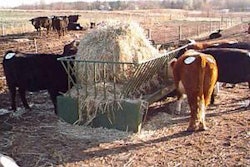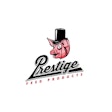An ad hoc coalition of 40 food and agricultural organizations has sent a letter to the Obama administration and Congress expressing concern that a proposed free trade agreement between the U.S. and the EU might fall short of long-established U.S. objectives for trade pacts.
It has been suggested that a U.S.-EU free trade agreement negotiation should not be pursued as a “single undertaking” with success in one area dependent on success in all the others, according to National Pork Producers Council President R.C. Hunt. “The agriculture community, however, believes that, rather than creating a high-standard 21st century trade agreement that is central to the administration’s trade policy efforts, approaches other than a single undertaking would assure the perpetuation of trade barriers to many U.S. products and sectors, including agriculture,” said Hunt.
Had it embarked on any of its existing free trade agreements using the approach being suggested by some for an agreement with the EU, the U.S. would not have in place the comprehensive agreements it has today, according to the coalition letter, and the administration would not be pointing to the ongoing Trans-Pacific Partnership trade talks as the model for all future agreements. “The EU’s free trade deals with other countries do not meet the high standards of U.S. trade agreements,” said Nicholas Giordano, the National Pork Producers Council’s vice president and counsel for international affairs, “and we doubt that the EU would ever agree to open its market to agricultural commodities unless it was obliged to do so as part of a comprehensive trade agreement.”
The coalition letter says that the removal of unjustifiable EU sanitary and phytosanitary restrictions on U.S. food and agricultural products would have to be an important part of the overall goal of improving the bilateral U.S.-EU relationship. The letter also points out that keeping agriculture in trade deals is a way for governments around the world to help keep the price of food affordable. “We need to see this as the critical national security issue that it surely is,” said the coalition.

















